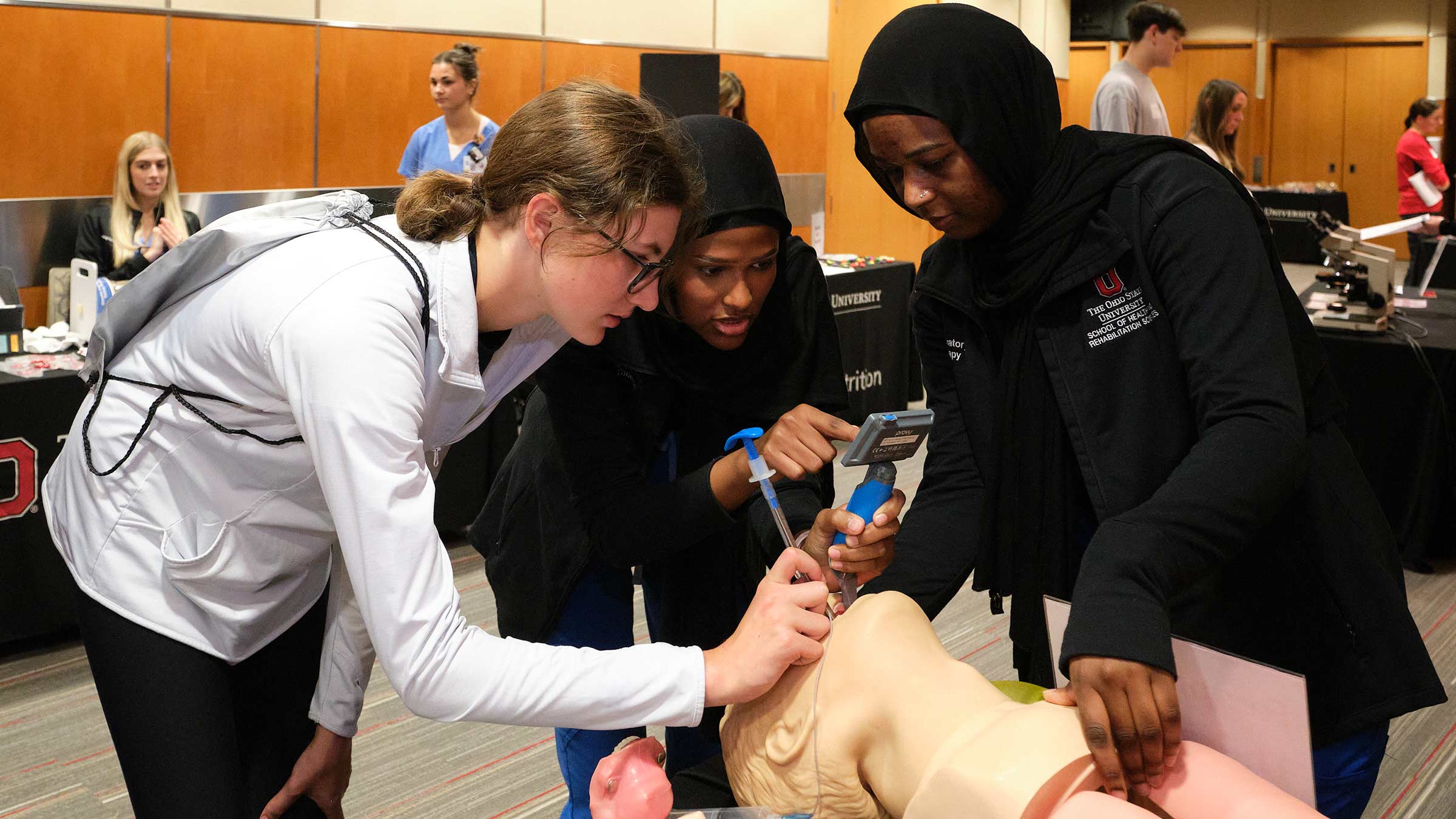
Every medication you’ve ever taken went through years of testing to make sure it was safe and worked well before it was made available.
Researchers played a key role in developing that medicine, but so did many others working behind the scenes.
Some recruited and screened volunteers for studies testing the medication and its side effects. Others collected and analyzed the study results, managed the budget or made sure all regulations were met at each site where the drug was tested.
In the field of clinical research, these and other roles are critical. They ensure that every medical study testing new medications, devices and other treatments is done safely and accurately.
While these jobs are in high demand, few accredited programs in the nation train people with the skills to manage these important research projects. Seeing a gap in the need for this skilled workforce, The Ohio State University College of Nursing developed a master of clinical research degree and two academic certificate programs, one for undergraduates and another for graduates.
Opportunities in clinical research
The field of clinical research has a wide variety of jobs, and the high demand for staff is expected to continue to grow, says Carolynn Jones, DNP, director of the College of Nursing’s Master of Clinical Research Program, which is only the second accredited graduate program of its kind in the nation.
“And yet, many people don’t know the field exists,” Dr. Jones says.
“You’re saving lives. You’re part of a team, managing the research and getting it done efficiently and ethically.”
A pathway into clinical research
The recent surge in demand for staff in clinical research stems in part from a growing number of new medications and devices being developed, as well as an expanded health care industry.
Despite all the job openings, sometimes breaking into clinical research can be tough. But with a master of clinical research degree or an academic certificate, many are finding their way in or advancing within the field.
Careers that don’t require a doctorate
Often when people think of research careers, they think of PhD-level jobs. But there are so many other important positions, says Jessica Fritter, DHSc, MACPR, an associate clinical professor of practice at the College of Nursing.
“Whatever your interest, there’s a job for you,” Dr. Fritter says. “You could be someone who really likes business and finance or contracts. You can have a career in clinical research. You might like enrolling study volunteers or monitoring studies. There’s project management and data management. There’s just so many options.”
Climbing the ladder in clinical research
 Shannon Walden already was working in clinical research when she applied for the master’s degree from the College of Nursing. As a nurse treating patients with cancer at a Tampa hospital, she loved her job but hoped to move up in the clinical research field.
Shannon Walden already was working in clinical research when she applied for the master’s degree from the College of Nursing. As a nurse treating patients with cancer at a Tampa hospital, she loved her job but hoped to move up in the clinical research field.
“Everyone wants to make jumps in their career,” says Walden, who now lives in Dallas. “I was looking for an opportunity that would give me the most amount of growth.”
Since the master’s degree program is completely online, she could fit her studies around her work schedule.
Days after graduating with a clinical research master’s degree in December 2022, Walden had a job offer from Merck, a pharmaceutical company. Then last fall, she got promoted and became a clinical research associate.
She manages Merck’s clinical research trials across the southern United States. In her role, Walden monitors the test sites, making sure staff members follow proper protocols and collect all the necessary data the U.S. Food and Drug Administration requires.
“The master’s degree really, truly got me to where I am,” she says.
As a nurse, she helped give patients the medications that put cancer into remission. Now, she’s part of a team that creates new medications to help patients with not only cancer, but other diseases as well.
“I feel like I’ve come full circle,” she says.
Graduates making strides in the clinical research field
Alumni of the program work for a variety of pharmaceutical companies, academic medical centers and government health agencies. Nearly 400 people have graduated from the program to date.
“Every week I’m seeing someone post about a new promotion,” Dr. Fritter says. “It’s really gratifying to see. They’re able to use their degree or certification and advance in their careers. Those who are novices are able to get a position and then work their way up.”

Answer your calling to care with us
The Ohio State University College of Nursing is preparing nurses and clinicians with degree and certificate programs designed to get you ready to change health care for the better to benefit all people.
Explore our top-ranked programs



